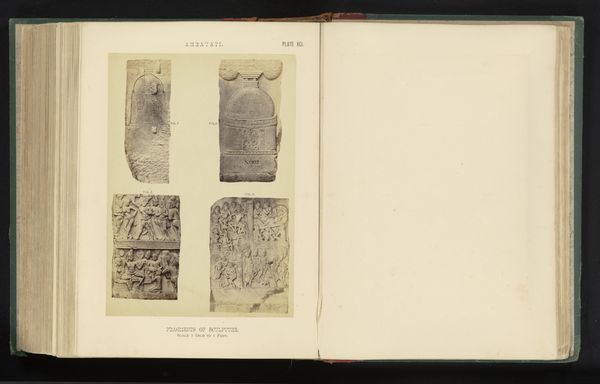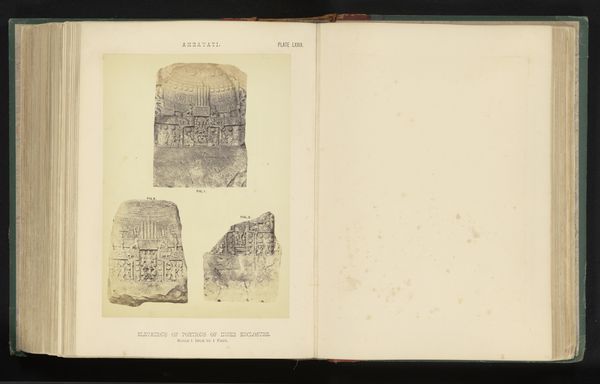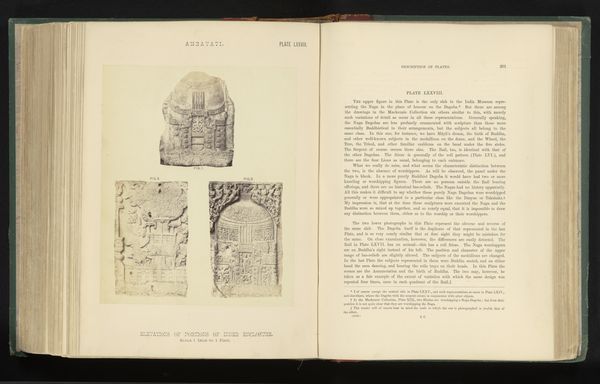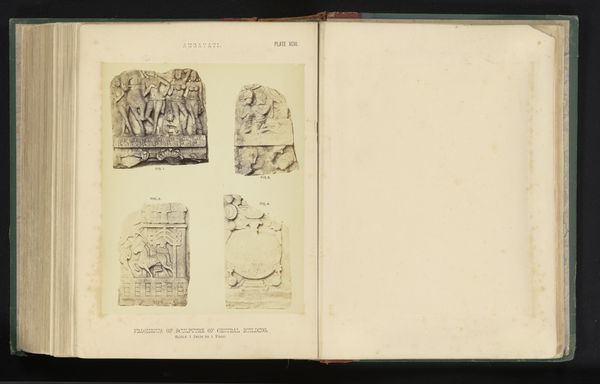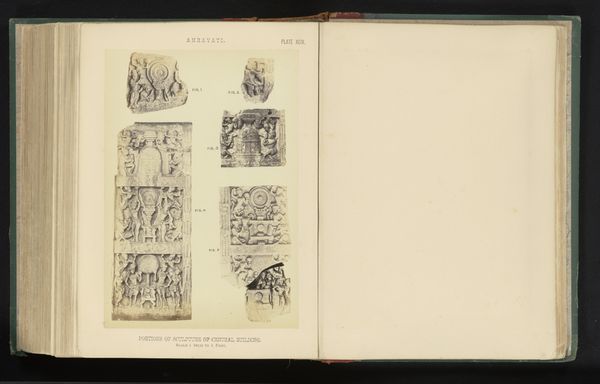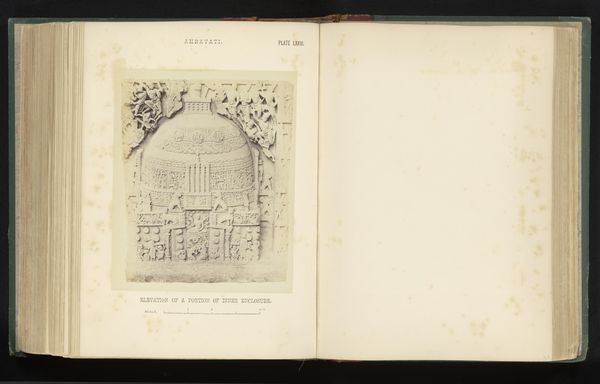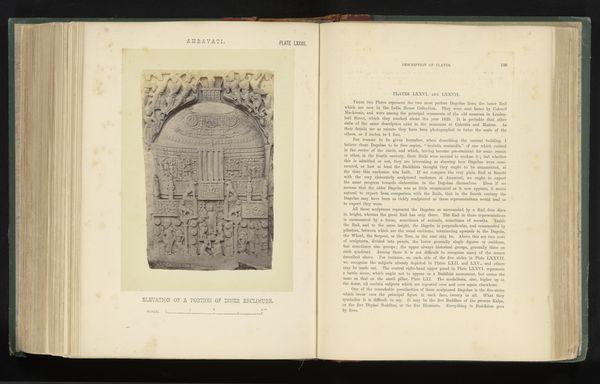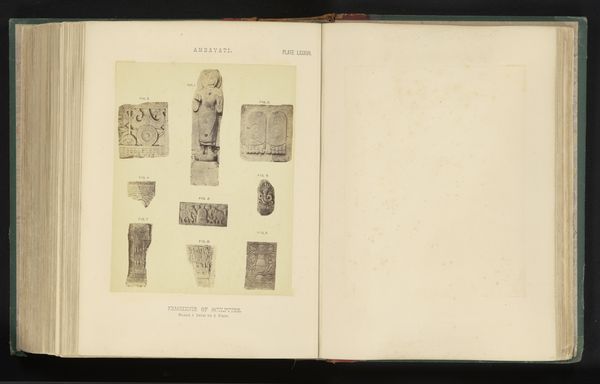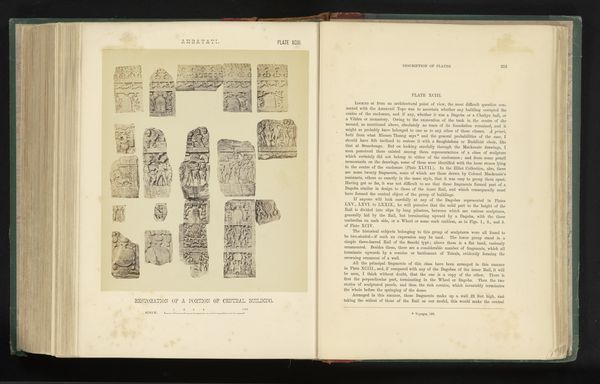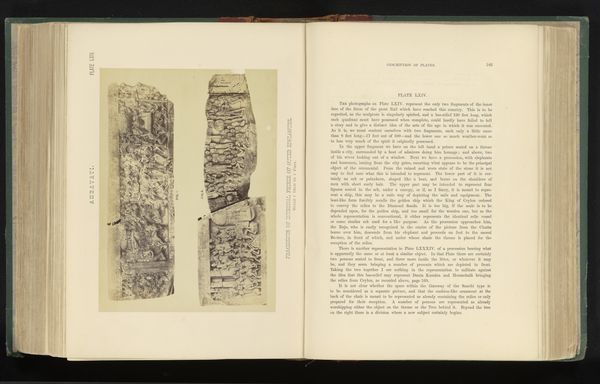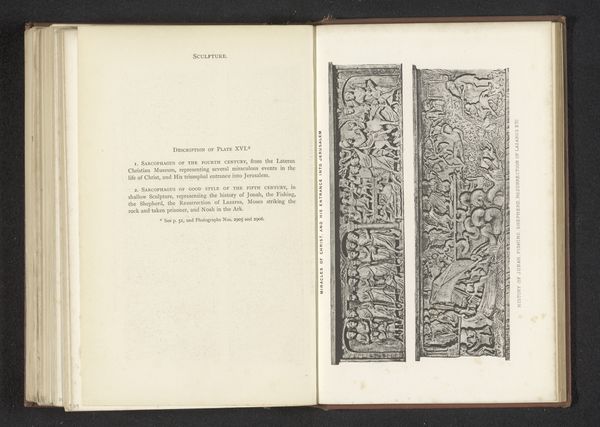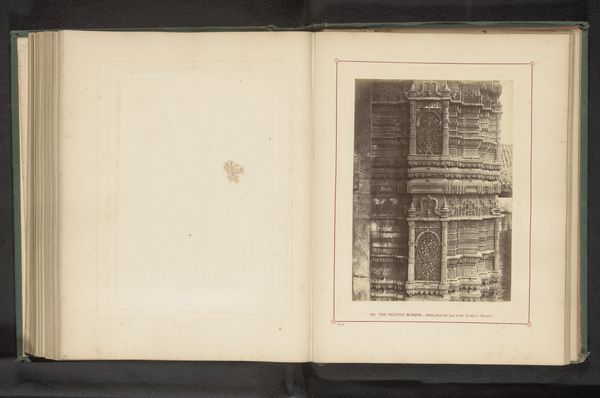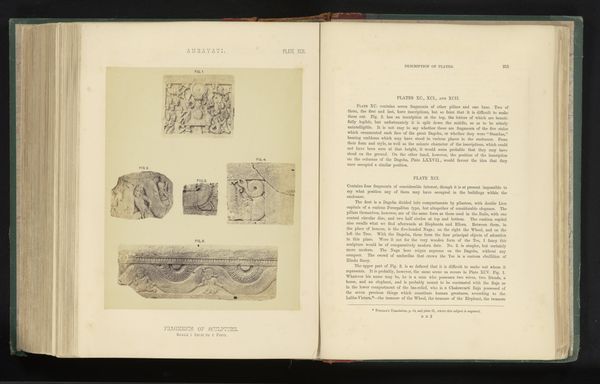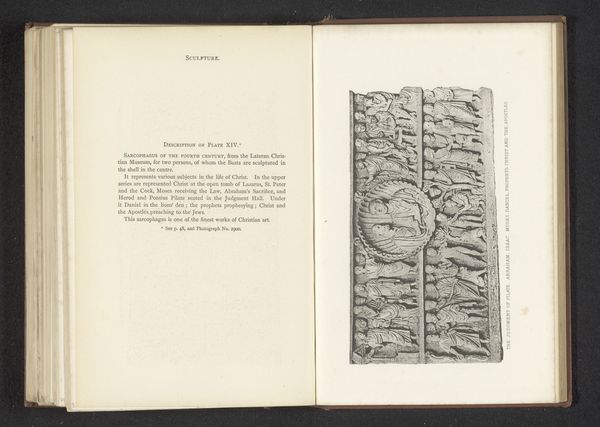
print, relief, photography
# print
#
relief
#
photography
#
ancient-mediterranean
Dimensions: height 209 mm, width 201 mm
Copyright: Rijks Museum: Open Domain
Editor: Here we have a page showcasing "Drie reliëfs met religieuze voorstelling", or Three Reliefs with Religious Representations. This print, from before 1868, features three photographic reproductions of ancient reliefs. What strikes me is how the stark monochrome and the presentation in this bound volume, lends it a sort of…archaeological feel. What do you see in this work, presented this way? Curator: Well, you're right about the "archaeological feel." This photograph isn't just about the art *on* the reliefs; it’s about the *act* of discovering and documenting ancient cultures, and then disseminating it to a wider audience via photographic reproduction. Think about it – photography in the 19th century became an indispensable tool for colonial projects. How do you think this accessibility of imagery altered perceptions of ancient cultures? Editor: That's fascinating! I suppose making images of these artifacts readily available shaped, and possibly standardized, a specific narrative about these cultures. It moved them into the public sphere in a whole new way. Curator: Exactly. It brings up questions about ownership, representation, and who controls the visual narrative of the past. Photography was a powerful tool of cultural authority. Where would one even go to see the real artifacts from the photo? Are they only accessible now via museums? These factors inevitably shaped the original cultural understanding. Editor: I hadn't really considered how much the medium of photography impacts our view of the relief itself. I’ve definitely got a new perspective on old art now! Curator: Indeed! Looking at art this way urges us to always consider context. Not just about what the art *is*, but who controls its visibility.
Comments
No comments
Be the first to comment and join the conversation on the ultimate creative platform.
